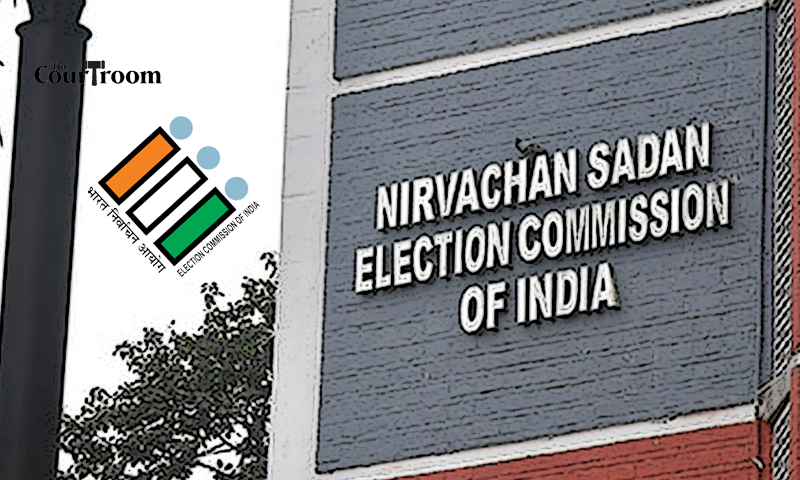The Supreme Court questioned the Election Commission of India (ECI) regarding potential penalties for interfering with or altering Electronic Voting Machines (EVMs).

Concurrently, the Court emphasized the importance of maintaining trust in the electoral system.
The Supreme Court on Tuesday inquired of the Election Commission of India (ECI) whether there exists any legislation stipulating penalties for officials and authorities found tampering with Electronic Voting Machines (EVMs).
A bench of Justices Sanjiv Khanna and Dipankar Datta noted that without the presence of stringent penalties, the potential for manipulation persists.
“If there is any manipulation, what is the prescribed punishment? That is a serious matter. There should be a fear that if something wrong is done, there will be consequences,” remarked the Court.
In response, the counsel for ECI mentioned, “Breach of office punishment is there.”
“We are not discussing the procedure. There is no specific provision regarding manipulation, if it occurs,” Justice Khanna pointed out.
However, the Court simultaneously stressed the importance of maintaining trust in the system.
“My home state of West Bengal has a larger population than Germany. We must place some trust and faith in someone. Do not attempt to undermine the system like this,” stated Justice Datta.
The Court was addressing a series of petitions urging for a comprehensive tally of Voter Verifiable Paper Audit Trail (VVPAT) slips in elections.
The petitioners argued that all VVPAT slips should be cross-checked with the EVMs instead of the current practice of tallying only five EVMs.
“They are only counting 5 VVPAT machines per assembly when there are 200 such machines this is 5 percent only and there can be no justification in this. The seven second light can also lead to manipulation. The voter should be allowed to take the VVPAT slip to put it into the ballot box,” he said.
Also Read: Petition Seeks Six-Year Poll Ban on PM Modi for Alleged Religious Appeals in Election Campaign
The Bench cautioned against human intervention in the polling and counting process, citing potential issues and biases.
“Typically, human interventions lead to problems, and human fallibility, including biases, can arise. Machines, generally without human intervention, yield accurate results. However, issues arise when there is human intervention or unauthorized alterations to the software or machines. If you have any suggestions to prevent this, please present them,” stated the Court.
Moreover, the Court rejected the plea to revert to elections via ballot paper instead of EVMs.
“What we are saying that the paper slip falls from the box and we collect that paper slip.. and we see what we have voted for. From the 2019 elections, the BloombergQuint analysed the data on the ECs website to go statewise and this data was pulled from the website later and there were discrepancies in 373 constituencies,” he said.
The Court then proposed the possibility of having an independent technical team inspect the EVMs after voting concludes.
“We are considering whether, after voting concludes, the machines can be retained for inspection by a technical team to ensure there is no foul play. We have reviewed the counter affidavit and observed the process of mock polling. We want to ascertain whether the three units are present and if they can be kept together,” the Court inquired.
Additionally, the Court sought clarification on whether CCTV cameras are installed at all polling booths.
The ECI responded that CCTV cameras are installed in 50 percent of polling booths.
The next hearing is scheduled to continue on Thursday, April 18.


